David Knight explains how taking on a second store was the biggest challenge of his retailing career so far.
His commendable dedication to sourcing local products and supporting the local area saw David Knight’s original store in Hassocks, West Sussex, crowned Convenience Retailer of the Year in 2012 and pick up Community Retailer of the Year in 2013. But it is precisely David’s commitment to the local cause that was very nearly his downfall when he purchased his second Budgens outlet in nearby Henfield last December.
The challenge was on from the start as bringing the store up to an acceptable level was a mission in itself. “Before, it scored low in mystery shopper tests as it didn’t have all the must-stocks and we had to add 850 lines just to bring it up to standard with Musgrave requirements,” he says.
But, of course, David didn’t just want his store to be ‘standard’. So he closed it for two weeks in January and embarked on a £450,000 refit. This included a £180,000 investment in a state-of-the-art heat reclaim system, which is set to lower electricity consumption by 30%; the doubling of the fresh produce area; the addition of a vast Cook frozen food offering to the first aisle; and the installation of smart wooden flooring in the alcohol section to give the area an air of sophistication.
Store facts
Budgens Henfield
Store size: 6,000sq ft
Staff: 40
Weekly turnover: £85,000
Last refit: January 2014
Refit investment: £450,000
Completing a refit of this scale in just 14 days would have been difficult enough, but David didn’t stop there. He was determined for Henfield to follow in the footsteps of his Hassocks shop and become a hub for local produce and the affluent foodies it attracts. So he set about getting as many small suppliers involved in Henfield as quickly as possible.
Despite his best intentions, though, things didn’t go quite to plan. He describes every refit he has ever worked on as “grim”, but this one pushed him to the edge. “We almost imploded internally,” he concedes. “We lost £140,000 by closing for the fortnight, which had a dramatic impact. If we’d have been closed for any longer we’d have run out of money.”
Various hitches put the work two days behind, including the wrong heat reclaim software being installed and incorrect equipment ordered. But it was David’s attempt to introduce so many small suppliers at once that almost turned the project into a disaster of epic proportions.
“We were dropping local suppliers in left, right and centre - at one stage we had 42 - but then we had wastage you wouldn’t believe when stock never even made it out to the shop floor as we had nowhere to put it.
“We’d over-ranged our local meat section and had to strip it back, and the same with our Bangers Galore sausage supplier. In addition, we had issues where we had product on 1.25m of shelving and then changed it to 1m shelving and we were left with excess stock.”
Having jumped in at the deep end, David made the difficult decision to reduce the number of local suppliers he was using. “We cut back to 28 suppliers to get stock levels right. Horticulture suffered most as we had to stop all four suppliers.
“We then stepped back and decided to bring back one supplier at a time. In a corporate retail firm there’s a buying chain, whereas we have to do it all ourselves with just one girl in the office. There was just too much work for one person.”
He might have gained a few grey hairs in the process, but by the end of January the store was back up and running and the results were pretty much instantaneous.
“It was like flicking a switch,” grins David. “We thought ‘Where have all these children and young families come from?’.”
Taking a look around the store, it’s no wonder it has attracted a new customer base. It might seem a little controversial to have frozen food so close to the store entrance, but David explains that locating the Cook meals within the fresh section has had a huge impact on sales as many customers buy veg to go with their frozen meals. Cook is currently bringing in £2,500 a week and fresh accounts for a hefty 48% of sales.
And as for local suppliers, the store is positively brimming with quirky products from lesser-known brands. Take adult soft drinks, for example. In most stores of this size, shoppers might expect to find a line or two of Shloer and Appletiser, and perhaps a couple of Bottle Green variants. Here, you get several of these, plus a good 30 or so additional lines. “We had apple juice and ginger cordial, but then we thought ‘let’s be category heroes!’,” beams David.
And so there are cranberry & lime, cloudy lemon and orange & passionfruit sparkling waters from Feel Good; Ame grape & apricot spring water; Fentimans curiosity cola, ginger beer and cherry coke; carrot and pear & raspberry juices from James White; and at least three shelves of Belvoir cordials. It’s enough to make you go tee-total - or at least it would be if the wine selection wasn’t equally as inviting.
“In the old store we had five 1m shelves of red wine; now that area is five times as big,” explains David. There’s Court Garden and Ridgeview Sparkling Wines, produced nine miles from store, and Bolney English Wines from just six miles away, to name but a few. Each local supplier and their distance from the store is clearly labelled to add extra interest.
And it’s not just the products themselves, but the way in which David collaborates with his local suppliers that makes the offer so enticing. “We’re trying to work differently with suppliers now. We’ve started stocking Bolney English wines, which is a big brand in these parts. We have three wine tours lined up with them, so when we run our next tasting event we’ll enter everyone who buys a bottle into a draw to win a tour.”
He’s also teamed up with his ale and meat suppliers. “We’re able to mimic the Budgens’ ‘three for £5’ ale offer on our local ales. We’re also working with our butchery supplier Clive Miller to run a local sausage line on promotion over the bank holidays.”
Clever merchandising has also enabled David to showcase lines from small suppliers. “We use ladder racks on the aisle ends to display speciality products that link in with other products in the aisle,” he says. “For example, in the home baking aisle we’ll have the usual flour, baking soda and dried fruit, and then in the ladder racks we’ll stock Saison gingerbread spiced sugar, Little Pod Pure Bourbon Vanilla Extract, and Willie’s Venezuelan Black Cacoa. That’s how you get your basket spend up.”
The slow and steady approach to stocking local suppliers is certainly doing the trick. “We’re now back up to 39 suppliers and eventually we’ll mirror Hassocks, which has 54,” says David. The benefits of using local suppliers are also coming to the fore, such as ordering products at short notice when the weather changes at the last minute. “That’s the benefit of having small suppliers who can react quickly. Our fruit and veg wholesaler is sourcing from Covent Garden market and we can order extra barbecue stuff from our meat supplier Clive Miller.”
There’s no denying that the past few months have posed massive challenges for David and his team. “It’s been very tough. It’s a bit like having a second child [David should know having become a father for the second time last summer]. If we’d have bought a second store when we’d originally intended back in 2008 we’d have crashed and burned. Without having the structure of Hassocks in place we’d be lost.”
But things are definitely looking up now with sales increasing from the high £60,000s when David took on the store to a weekly average of £85,000. “We’re building up shoppers’ confidence again and we hope to average £95,000 within the next year.”
Community culture
When David opened the Henfield store, he sent out leaflets to local businesses and suppliers introducing the store as a community business and encouraging people to come forward if they’d like support.
“What we didn’t realise was that Hassocks’ reputation had penetrated so far. People [in Henfield] know about the Bangers project and the Apple project we have run previously and they want to be part of it. We got inundated with requests!”
He also has his sights set on a food club. “We have a huge amount to do with loyalty and setting up a food club. We’re looking to offer an electronic card that we can use to get some information on our demographic. We wouldn’t data mine it like Tesco, but we could find out why people aren’t coming in frequently and what they buy when they do come.”
David is now busy creating a plan of action to ensure that he keeps his new customers and community happy. “I can’t stand the raffle prize culture - it doesn’t mean anything. Instead, we’re going to come up with a plan to replicate some of the food projects here that we ran in Hassocks.”




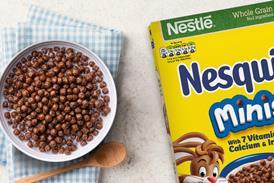


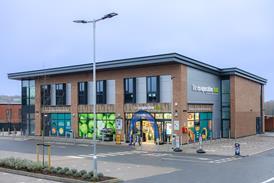
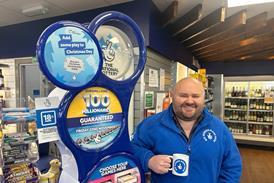












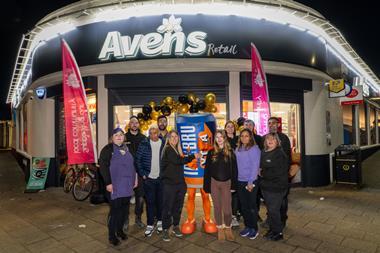



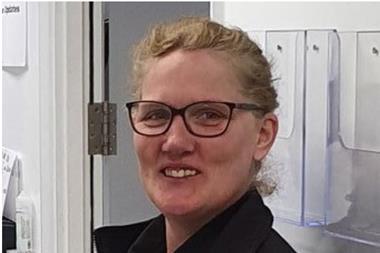
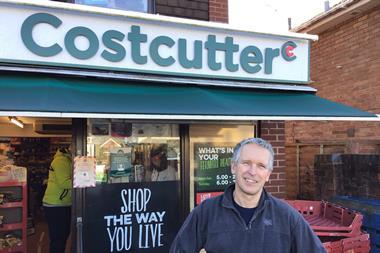
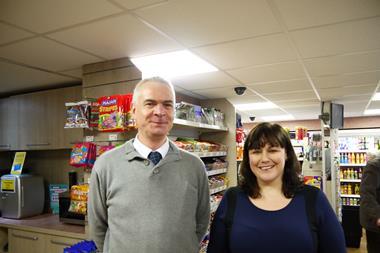
1 Readers' comment